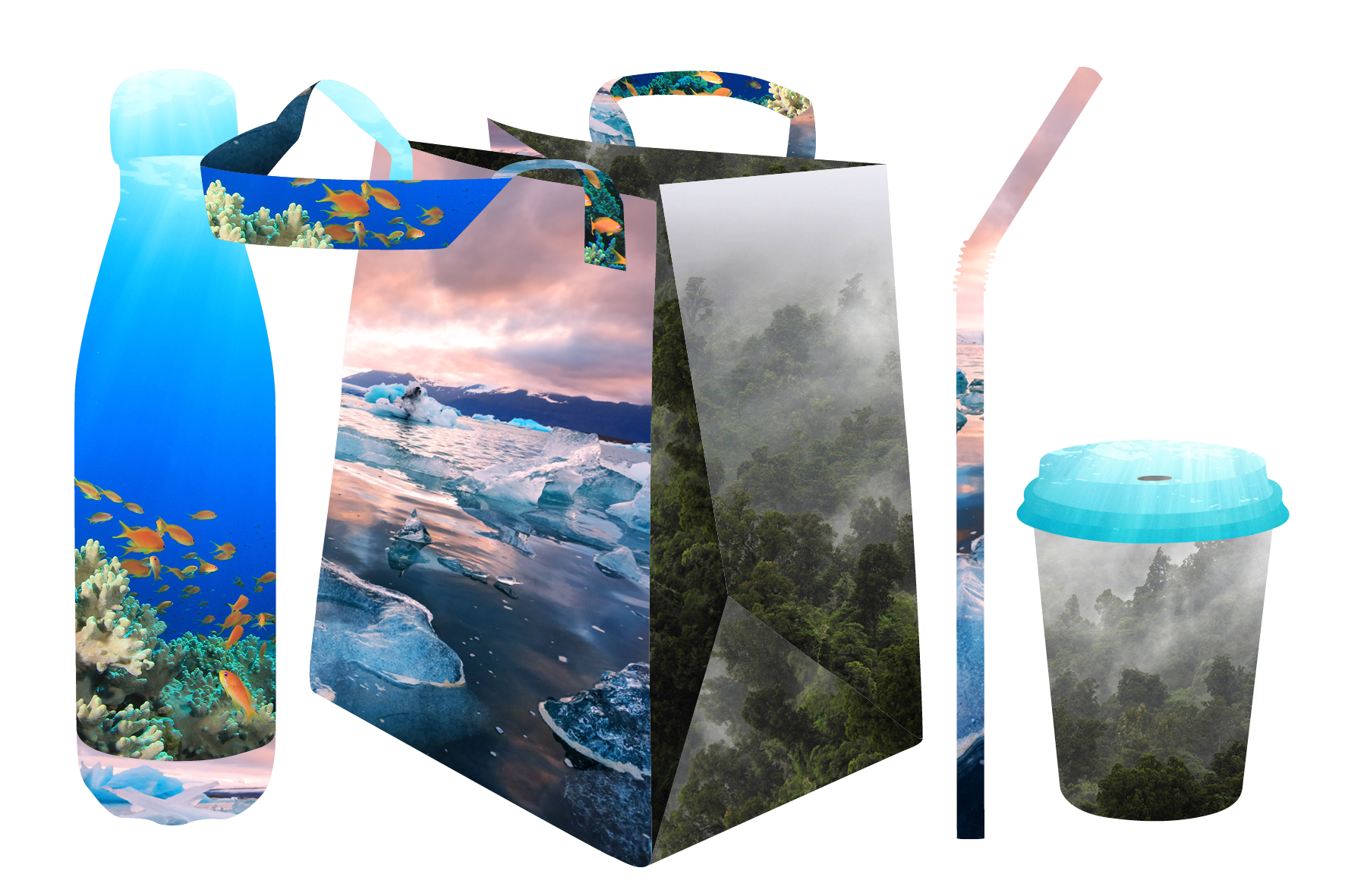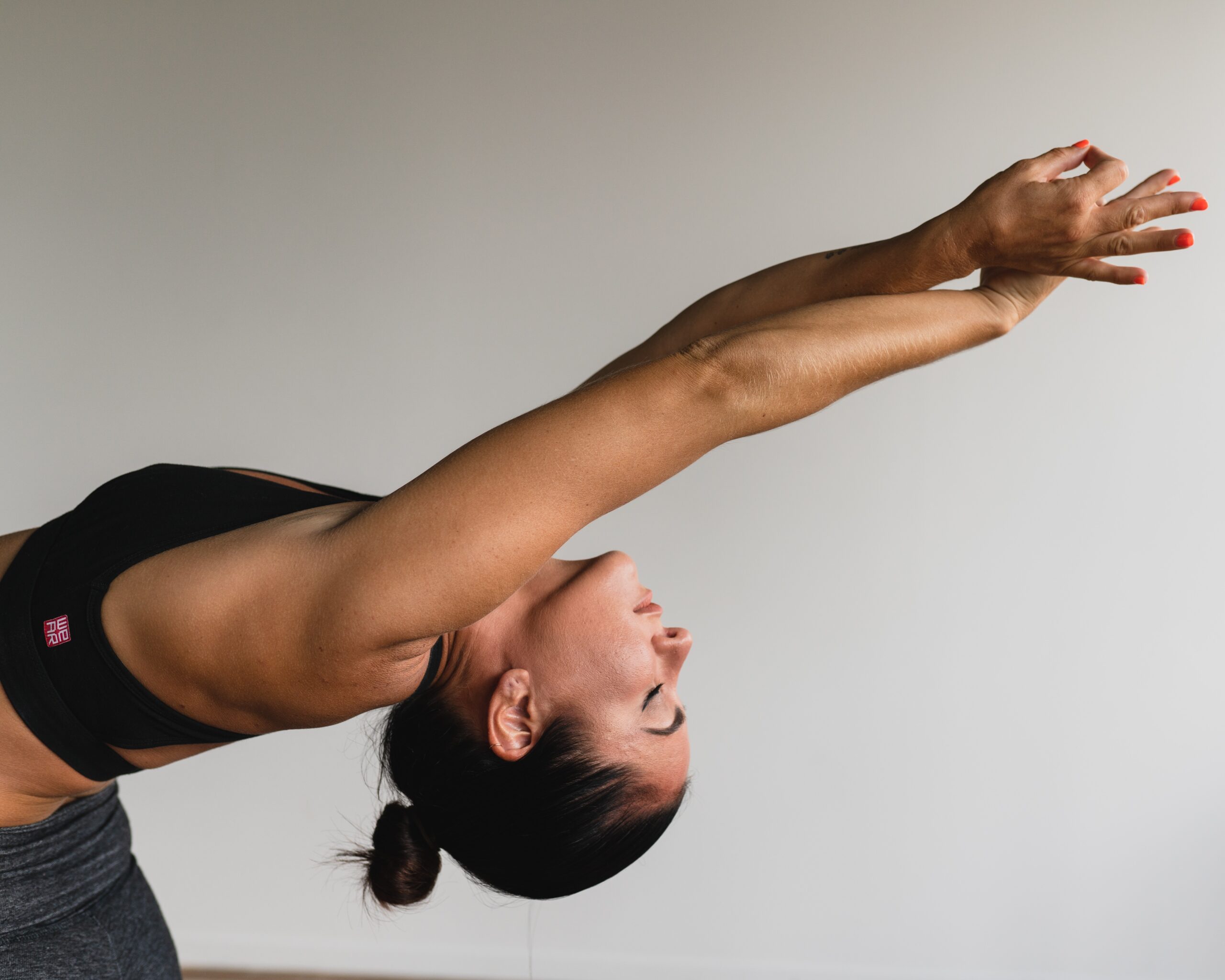From issue 58.
The eco-packaging heroes who are tackling the plastic problem, and how you can too.
Words Lindy Davis
The 1960s was a memorable decade. Labelled the ‘Swinging Sixties’, in reference to the relaxation of taboos relating to race and sex, it was a revolt against social norms.
It also marked the first moon landing, and the arrival of the humble, invasive plastic bag. Similar to a garden weed, plastic quietly entered our world and caused destruction in ways no-one could have imagined.
Early in the 20th century, Belgium-American chemist Leo Baekeland was a key figure in the creation of the plastic revolution; he invented Bakelite, the world’s first synthetic plastic composed of large molecules (none of which are found in nature).
Due to its versatility and relatively low cost, plastic largely made from petrochemicals was used in everything from milk bottles to aircraft.
In 1953 two German chemists discovered how to make high-density polyethylene; 12 years later, Swedish company Celloplast designed the first ‘T-shirt’ plastic bag, soon to be the universally accepted grocery bag. By the end of 1990, the majority of supermarkets worldwide were convinced of the economic benefits and had switched from paper bags to plastic.
Fast-forward 20 years, the global dominance of plastic and its slow decomposition means the environment is seriously polluted. The resulting contamination is one of the biggest issues facing our oceans and waterways. Eight million tonnes of plastic ends up in our ocean every year, according to a study published in 2015 in the journal Science, eventually disintegrating into small pieces that in most cases never disappears. Several countries have banned plastic bags, while others like Britain have imposed a levy on them.
Trustee of New Zealand’s OSOF (Our Seas Our Future) Noel Jhinku says the recent plastic-free media campaign created national support to phase out single-use plastic bags. But the issue lies in getting the Government to recognise this serious problem and give it the urgent attention it requires.
Jhinku says there’s been a gradual shift in mindset and the more Government and private businesses start to re-think packaging alternatives, the closer we’ll be to becoming the clean, green country we claim to be.
“The simplest, easiest thing a person can do at home or work is to think before you buy something, and avoid plastic as much as possible. The ideal would be to divert as much waste away from landfills and recycle or compost where you can.”
Liquid liability
Bottled water is a major culprit in plastic pollution. More than a third of New Zealanders drink bottled water, and one in five buy bottled water each week. Nearly 40 million plastic bottles are manufactured here every year.
Kiwi nutritionist Claire Turnbull says while increasing water intake is to be encouraged, people don’t need to buy bottled water.
“We are lucky living here with easy access to clean drinking water, and if people want sparkling water, then appliances like SodaStreams are ideal. The reusable carbonation bottles have a three-year lifespan, eliminating the need for single-use plastic.”
Although many New Zealanders remember milk delivered in glass bottles, plastic-packaged milk has long been the norm. There are now alternatives; some smaller milk producers are reverting back to glass or cardboard containers.
Nelson-based Oaklands Milk farmer Julian Raine estimates his company managed to save more than half a million plastic bottles from heading to landfill in 2017.
Their glass-bottled milk, named Aunt Jean’s Dairy, is now available nationwide and for those living in Nelson, there are six Oakland’s Latterias (vending machines) to re-fill your own bottles.
“We felt we needed to return to grass roots. All this reliance on plastic will come back to haunt future generations… We are part of a slow movement gaining momentum towards being more environmentally aware,” says Raine.
Food for thought
The concept of a refillery has become increasingly popular; two new ventures have entered the New Zealand market. Auckland wholefoods store GoodFor was established to eliminate waste and encourage shoppers to make sustainable buying decisions. Director James Denton says he was inspired to start a business that would counter the tremendous waste problem caused by plastic overuse.
“Our glass jars, paper bags and plastic-free delivery service ensure our customers are taking steps to reduce waste. It’s easy to convert your pantry storage back to glass with a selection of jars and bottles that can be re-filled with organic and locally sourced products.”
Australian-founded company The Source has opened two bulk food stores in Auckland. Designed as a zero-waste, zero-packaging supplier, The Source prides itself on un-packaged, healthy wholefoods sourced mostly from Australia. Owner Andrea Watt says their paper and jute bags are proving to be popular with customers, who are also encouraged to bring in their own containers.
“A big frustration for people is the wastage that goes into buying a bunch of ingredients for one recipe, only to use a fraction of the ingredients – not to mention the several layers of plastic and foil that comes with each product,” she says.
A recent proposal for a government levy on plastic bags was supported by more than 90 per cent of New Zealand’s mayors. Wellington mayor Justin Lester believes there should be a mandatory levy on plastic bags for businesses. “Countdown is a positive example of where the industry is taking care of itself, but the government should legislate on this issue, which affects the entire country,” says Lester.
Countdown managing director Dave Chambers says single-use plastic bags will be phased out from its 184 stores and its online delivery service by the end of 2018. The move should prevent 350 million plastic bags from entering the environment every year.
Similarly, Foodstuffs’ (parent company of New World and Pak’nSave) Bag Vote campaign found the majority of shoppers wanted to introduce a charge for plastic bags – but after public pressure for a stronger solution, they decided to match Countdown’s bag ban.
External relations manager Sue Hamilton says change needs to come from businesses and individuals. “It’s about changing the habits of a lifetime and making the transition as easy for people as possible. Remember to bring your own multi-use bags in the car, or a fold-up one in your handbag or briefcase. Recycle your meat tray or drink bottle rather than trashing it.”
Foodstuffs runs a Soft Plastics Recycling Programme, where many plastic items can be collected from stores and recycled into long-life products such as benches and bollards.
Their Little Garden promotion rewards shoppers with small seed kits to inspire New Zealanders to create their own garden, growing fresh vegetables and bee-friendly plants.
An increasing number of visionaries in the business sector have opted to eliminate single-use plastic in preference for sustainable alternatives.
New Zealand’s first carboNZero-certified packaging company, Ecoware, recently won the 2017 Westpac Business Growth Grant competition. Directors James Calver and Alex Magaraggia were inspired to create a packaging business with a conscience. “Our philosophy is to create a waste-free world with equal consideration to social, environmental and economic factors. We want the food we enjoy to be disposed of along with its packaging. It can return to the soil with zero-waste systems, effectively reducing our country’s reliance on landfills,” says Calver.
Swapping out fossil fuels for rapidly renewable plant material, the Ecoware range is designed to reduce emissions for the product’s entire lifecycle. Made from raw materials including birchwood, Kraft paper, bamboo and paper pulp, the products can be commercially composted after use.
A key material used in Ecoware’s EcoCup is Ingeo bioplastic, which emits up to 80 per cent fewer carbon emissions than traditional oil-based plastics. Ingeo is made entirely from plants and is certified commercially compostable. It will biodegrade completely into 100 per cent non-toxic, nutrient-rich compost in 90 days.
The price of dumping
Calver says our waste industry is in a transition phase and its infrastructure needs an overhaul. To start, he suggests increasing disposal levies on landfill waste.
“Part of the problem is many of the landfills in this country are owned and controlled by waste-service companies. New Zealand has one of the cheapest dumping fees in the world and the majority of companies make decisions based solely on their bottom line. It’s too easy and cheap to send waste to landfill.”
Christchurch businesswoman Helen Rupp, known as the Rubbish Whisperer, was motivated to start her operation after living in Nepal and Bangladesh in 2009. Seeing the enormous piles of non-recyclable rubbish there, she realised New Zealand was accumulating plastic at an alarming rate and could face similar issues in the future.
Her environmentally friendly product range includes reusable mesh produce bags, beeswax food wraps, metal straws and bio-degradable paper straws; the bags are also sold through school fundraising programmes.
“New Zealand makes much more rubbish than many other countries, but we don’t see it because it gets conveniently taken away,” says Rupp. “If people could see how much single-use plastic that can’t be disposed of or recycled that sits in a landfill, they’d be horrified. It would be seriously confronting.”
EcoWarehouse, an online sustainable shopping business, was established to make environmental and sustainable products available and affordable to every household. Tauranga-based director Dunja Balmer says her products are sourced from ethically managed plantations and the packaging is either compostable or recyclable.
Its soapnut shells natural laundry detergent, sourced from India, is one of their most popular products and helps reduce the impact of plastic on the environment.
“Our product packaging is made from bamboo, cotton or wood and designed to last,” says Balmer.
The idea that a company would produce a product and not be concerned about where the container ends up, or whether it can be recycled, was motivation enough for Ethique director Brianne West. “I was really irritated at the amount of plastic used in the cosmetic industry, which subsequently creates an enormous amount of waste,” says West. “Given that each year only 12 per cent of plastic made is actually recycled, there’s a shocking amount of resources that are used once and thrown away.”
Ethique’s products are packaged in uncoated, chlorine-free, compostable cardboard, and the solid product range is made from naturally derived, sustainably sourced ingredients.
“We don’t use petroleum or parabens or SLS, and we don’t add water in our products as you already have that in your shower or basin,” she says.
Alternatives to plastic cling film have become increasingly popular for health-motivated consumers who want to keep food fresh and free of harmful chemicals. Auckland-based Honeywrap was established by three mums on a mission to reduce waste and mitigate the need for plastic. Increasingly aware of their environmental footprint, they looked for a business that would create a lighter impact. The New Zealand nature-inspired range is designed from organic cotton and made with beeswax, jojoba oil and tree resin.
Australian natural beeswax manufacturer Debbie Smithers created Deb beeez natural wraps after growing demand from her local community.
“I live in Byron Bay and everyone here is very earth and ocean conscious. Most people re-use their own bags, coffee cups and water flasks. Many of the food stores use paper bags, and beeswax wraps are really popular,” says Smithers.
She sources wax from local bee-keepers and uses jojoba oil and lemon myrtle, ensuring the wraps are fully compostable. She creates designs that appeal to both children and adults.
“Kids get a buzz out of opening their lunch bags to find sandwiches wrapped in colourful dinosaur or fairy wax wrap.”
The final straw
Plastic straws have caused their share of havoc, with unforgiveable quantities entering the ocean every year. Businesses such as Kerikeri-based Nature Body are doing their best to address the problem with reusable straws made from stainless steel. They’d like to target the hospitality industry, given the enormous number of straws that are thrown away.
Directors Nitya and Kyle Nixon established Nature Body in response to a market saturated with non-natural beauty products packaged in plastic. Their cosmetic range is packed in compostable cardboard or recyclable glass.
“We’re passionate about making an earth-conscious cosmetic line and found it hard to find natural products that were affordable, with a close-to-zero ecological footprint,” says Nitya. “We believe businesses are hugely responsible for change; we always research new packaging ideas to make our products totally earth friendly.”






